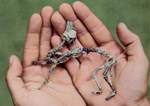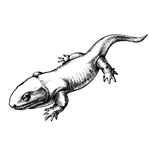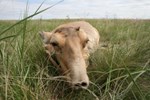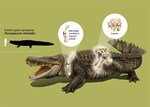Search - Research
141 - 150 of 193 results
-
RVC wins GCRF award for its research into goat plague
Award will fund the RVC's pioneering study of the viral pathogen that causes PPR,, an emergent disease that affects goats and sheep, as well as wildlife, across Africa and Asia,The Royal Veterinary College (RVC) has been awarded a GCRF Global Research Translation Award to …
-
Scientists discover songbirds have an unusual chromosome
A new study, involving scientists from the Royal Veterinary College (RVC) in England and the Institute of Cytology and Genetics (ICG) in Russia, has found that all songbirds have an additional chromosome in their germ cells unlike other avian species.A new study, involving scientists from the Royal Veterinary College (RVC) in England and the …
-
Population of critically-endangered Saiga antelope doubles in past three years
International group, which includes the RVC, dedicated to Saiga conservation shows the population now numbers over 228,000 compared to around 103,000 in 2015.The population of the critically-endangered Saiga antelope in Central Asia has doubled during 2016 …
-
Early Jurassic dinosaur shifted from four legs to two legs as it grew up
Scientists have discovered that an early species of dinosaur, Mussaurus patagonicus, could only move on four limbs once born but switched to two legs as it grew up, just as humans do. -
New study explains how fish got their fingers
New analysis of anatomical evidence shows how the limbs of land vertebrates (such as mammals and reptiles) originated from the fins of water-bound fishes. -
London’s ‘Knowledge Quarter’ is one of the world’s best locations for science and innovation
The one-mile radius around King’s Cross railway station in north London has been revealed to contain one of the highest densities of knowledge-based businesses and science organisations in the world.The one-mile radius around King’s Cross railway station in north London has been revealed to …
-
Young, male and crossbred cats at most risk of road accidents
Being young, male and crossbred increases a cat’s chances of being hit by a car, according to the findings of a new paper published today. -
First ever systematic review and meta-analysis of adverse effect of antiepileptic drugs in canine epilepsy
Researchers found that much of the evidence for the medical treatment of canine epilepsy was based on subpar reporting of adverse effect and in studies that were below the expected standard.How safe are antiepieleptic drugs? RVC research sheds light on epilepsy treatments.
Researchers …
-
New NERC grant: Saiga antelope mortality in Kazakhstan 2015: emergency investigation of disease outbreak to improve knowledge of drivers
Professor Richard Kock has received a grant from Natural Environment Research Council for the following study: "Saiga antelope mortality in Kazakhstan 2015: emergency investigation of disease outbreak to improve knowledge of drivers" Between 10th …Professor Richard Kock has received a grant from Natural Environment Research Council for the …
-
Ancient bus-sized crocodile had extra vertebra to assist movement, new study shows
An ancient caiman that weighed as much as an Asian elephant (3 tonnes) and almost was as long as a bus (8 metres) had unique specialisations to help it move, a new study shows. The Royal Veterinary College’s (RVC) Professor John Hutchinson joined …










